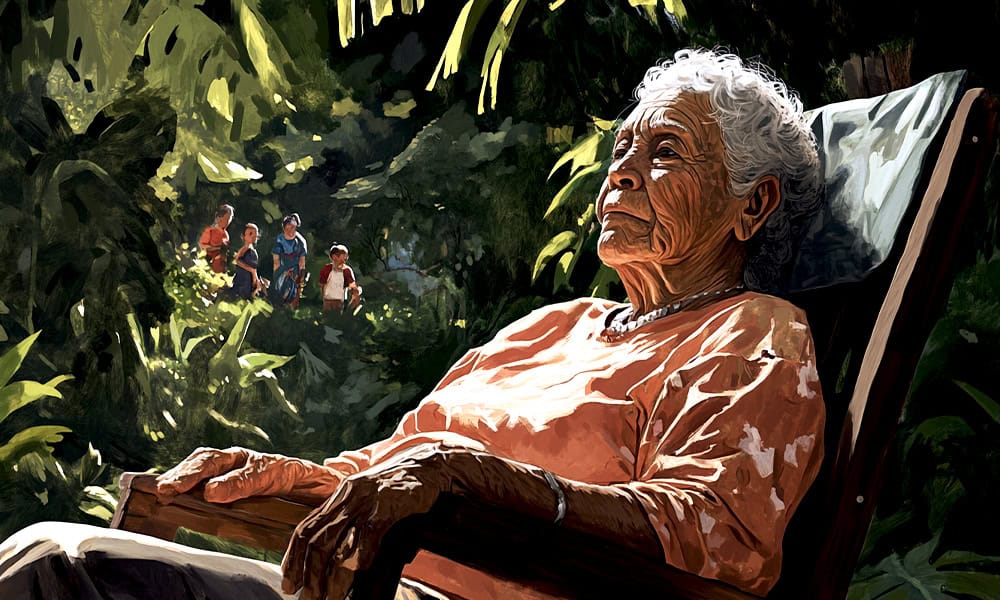The word my Tica wife’s family often uses to describe her mother is ‘roble,’ meaning an oak tree. She recently turned 93, or maybe 94, no one is sure, and no birth certificate exists. She was born in the Osa Peninsula almost a century ago, when it was even more massively forested and sparsely populated than today.
Large families were common, and she and her husband continued that tradition with 14 kids. They farmed and were classic hunter-gatherers, hunting deer, tepizcuintle, and occasionally monkeys, while fishing from the Rio Rincon and the Golfo Dulce. On their farm, they raised chickens and cows and grew beans, bananas, squash, and various local fruits.
When they wed, Selma was 16, and her husband Mingo was nearly twice her age. While this age difference might seem unusual today, it was not uncommon back then. Selma had only a few years of formal education, as she worked the farm from a young age. She began smoking hand-rolled cheroots to get through the long days of cattle tending.
Her first child, a daughter, was born when she was still a teenager. She birthed her children in seclusion, including twins, except for her 14th child, who was born in a hospital in Golfito after complications. Selma was also known as a reliable doula, midwifing countless babies in the area.
No photos of her existed until she was middle-aged, as cameras became more common. I once took photos of her helping a calf stuck in a cow’s birth canal. She expertly maneuvered the calf out, with her trusty stogie protruding from the corner of her mouth.
Mingo suffered a stroke in his 70s, which eventually left him blind, but his mind remained sharp until his death in his late 80s. He recounted the 1948 Civil War, how they received week-old newspapers and were unaffected by the fighting. Selma cared for him with the help of extended family. He joked with her during a medevac flight, a promise fulfilled, just before he passed a few days later.
Five years ago, Selma broke her hip, and less than a year later, broke the other. Surviving two broken hips is rare at her age, but she now spends her days in a wheelchair. With many generations of family nearby, she isn’t lonely. She watches TV daily, her favorite show following young Chinese women tending crops. Occasionally, she calls out “Muchacha!” to the onscreen women, perhaps seeing herself from decades ago.
No one will be surprised if she makes it to 100. If not, when her time comes, it will feel like losing an old-growth tree—an irreplaceable history, leaving behind only memories and the knowledge that they truly don’t make them like her anymore.






